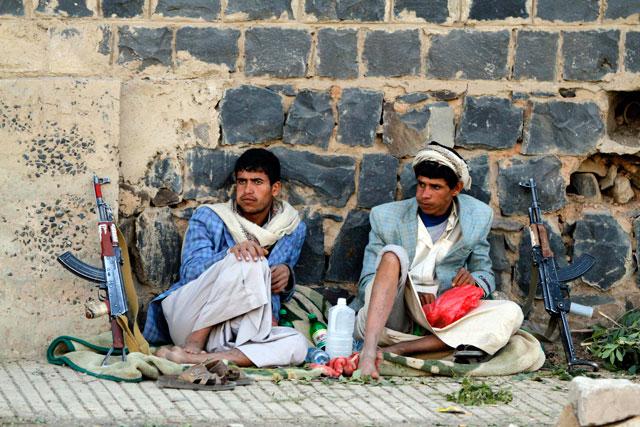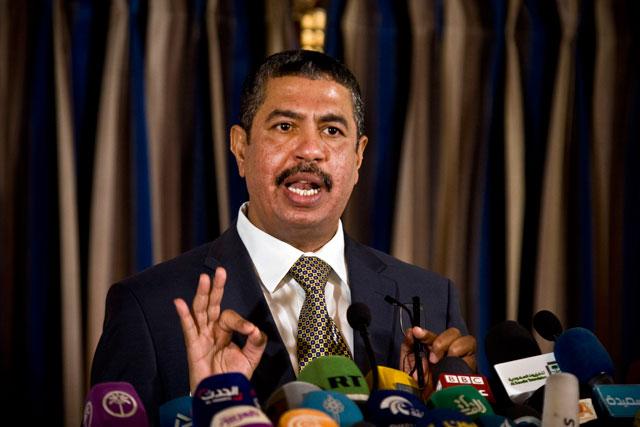You are here
Yemeni parties mandate formation of new government by President Hadi
By Reuters - Nov 01,2014 - Last updated at Nov 01,2014

SANAA — Yemen's main political factions, including the Houthi rebels, signed an agreement on Saturday mandating the president and prime minister to form a new government in an effort to defuse political tensions that have crippled the impoverished state.
Yemeni Prime Minister Khaled Bahah will head the selection of the new ministers with consultation from President Abed Rabbo Mansour Hadi, an statement e-mailed from the 13 political parties said.
"We, the political parties, ask President Abed Rabbo Mansour Hadi and Prime Minister Khaled Bahah to form a competent national government... which is committed to the protection of human rights, rule of law and neutrality in the management of affairs of the country," the statement said.
The statement did not mention when the new government would be formed, but a number of party members who were involved in the negotiations that led to Saturday's agreement said it could be in a few days or a week.
UN special envoy Jamal Benomar, who attended the meetings, told Reuters that under the agreement parties that do not have representatives in the president's advisory body will be allowed to nominate candidates for the different ministries.
"Following that the prime minister will choose the more competent candidates for each posting," said Benomar.
Yemen's Shiite Houthi rebels were among the groups who signed the agreement, according to the signatures on the agreement seen by Reuters.
The Houthis gave Hadi an ultimatum on Friday to form a government in 10 days or face "other options".
In recent months, the Houthis have become Yemen's power-brokers and sent their militiamen into the west and centre of the country, far beyond their traditional redoubts. They captured the capital Sanaa on September 21, following weeks of anti-government unrest.
The United States and other Western and Gulf countries are worried that instability in the country of 25 million could strengthen Al Qaeda and have supported a political transition since 2012 led by Hadi.
A southern secessionist movement and Al Qaeda onslaught on security forces had already stretched the resources of the government before the latest crisis, alarming neighbouring Gulf Arab states.
Related Articles
The UN special adviser on Yemen praised on Sunday the agreement of all Yemeni parties and political groups on the formation of an apolitical technocrat Cabinet that ended a deadlock of over two weeks.
Yemen's new Cabinet was sworn in on Sunday despite calls by former autocratic president Ali Abdullah Saleh and Shiite militias allied to him for it to be boycotted.
Forces loyal to Yemen's president said they had seized strategic buildings in the southern city of Aden on Monday after a five-hour battle, escalating a civil conflict threatening to split the country in two.














